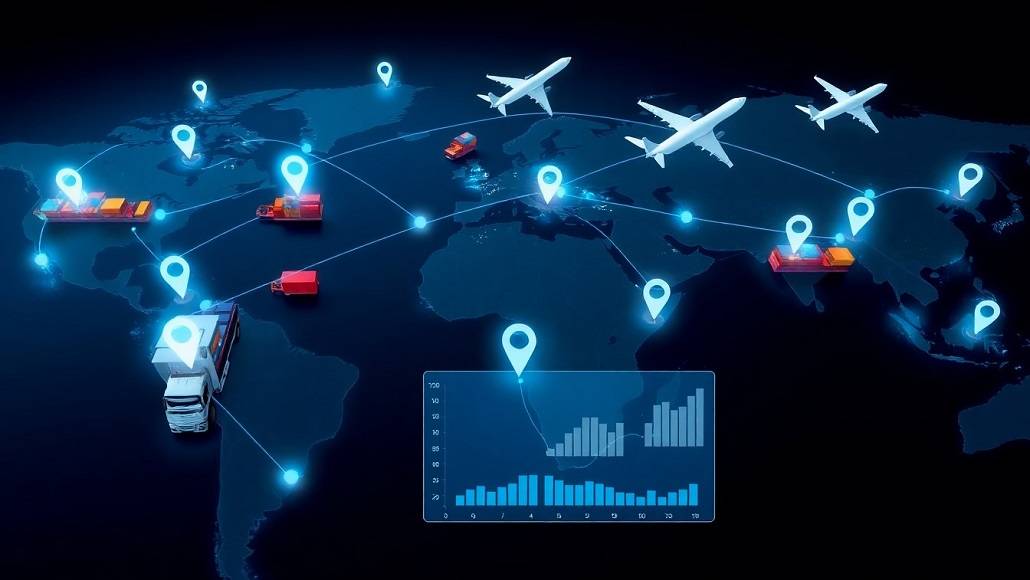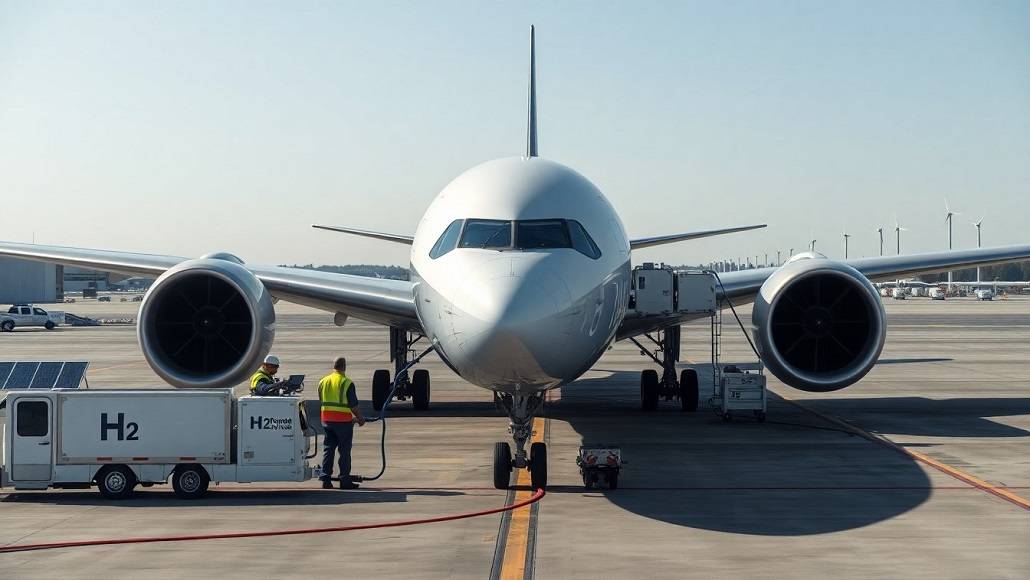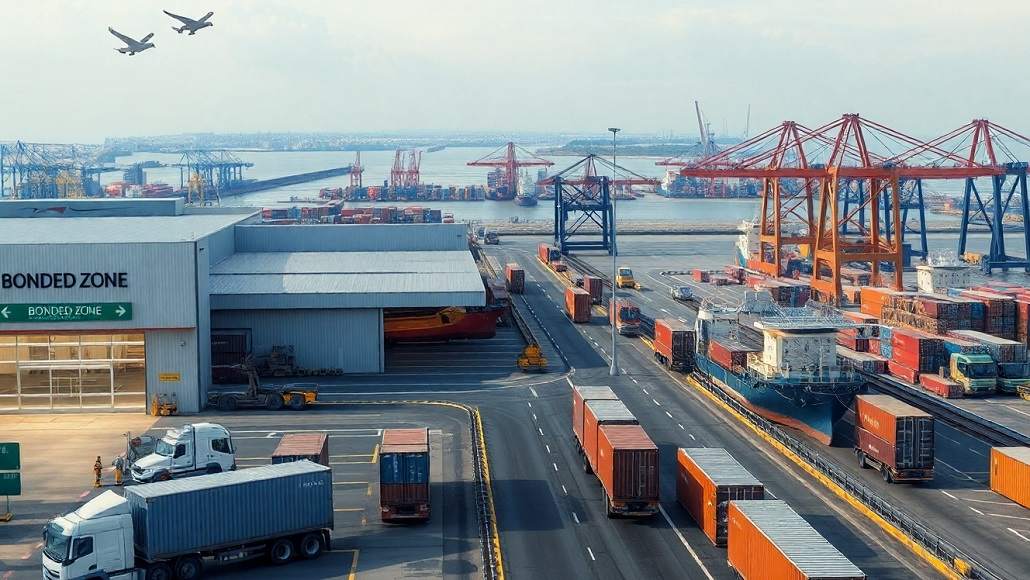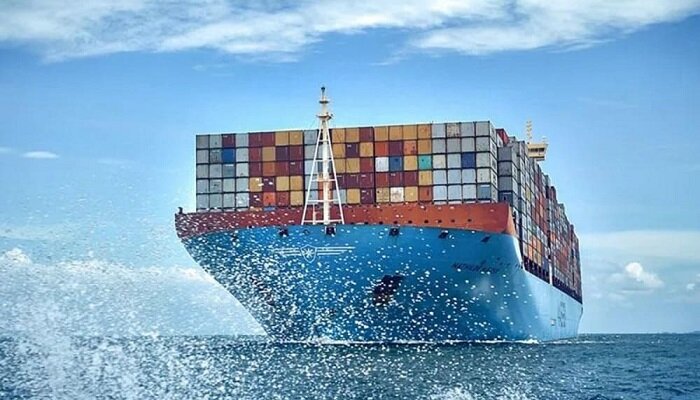Professionals in the supply chain, who are responsible for three percent of the world’s emissions, are obligated to decarbonize shipping by using technology-driven solutions.
Through the use of digital technologies, marine shipping is undergoing a transformation that is improving sustainability, efficiency, and overall operations.
Considering that shipping is responsible for three percent of the world’s emissions, technological advancements provide options that may improve the business and lessen its effect on the environment.
The shipping sector is coming under increasing pressure to reduce its carbon footprint, and the present amounts of emissions that it produces are reason for worry. The shipping industry is a huge contribution to the overall carbon output of the world. It is responsible for the same amount of pollution as the whole country of Germany.
Its influence might reach 11% of global emissions by the year 2050 if proper action is not taken to address it. To stay up with the aims of sustainability, the shipping industry has to embrace more environmentally friendly tactics, and technology is the key to making this shift happen.
Reducing emissions via the use of technology
The reduction of emissions is critical for the future of shipping, and technology provides techniques that may be used to accomplish this aspiration. Digital technologies, for instance, have the potential to optimize fuel use, improve routes, and ultimately boost operational efficiency.
Consequently, this has the potential to directly reduce the carbon footprint of the industry, so contributing to the maritime sector’s participation in the worldwide decarbonization drive.
Cathy Stephenson, MD at Wartsila Water & Waste, explains that shipowners and operators should look to their suppliers for a clear attention to detail, a knowledge of the wider ecosystem and context in which a vessel operates, and for technology providers that have the time and resources to properly understand all of the technical idiosyncrasies of a given ship. These are all things that shipowners and operators should do.
By putting data and sophisticated analytics at the heart of their operations, shipping businesses are able to leverage the power of real-time insights to improve fuel economy, anticipate equipment breakdowns, and cut down on downtime.
As a consequence of this, these technologies not only improve the environment but also save costs and contribute to increased safety.
The Internet of Things (IoT) has emerged as a disruptive instrument in this sector, making it possible for shipping firms to monitor the state of their cargo and the environmental elements associated with it in real time.
Containers are equipped with sensors that monitor everything from temperature to humidity, which helps to cut down on waste and improves quality control management. Through the Internet of Things (IoT), shipping becomes more responsive and nimble, altering conditions as required to secure cargo while simultaneously reducing its effect on the environment.
Green breakthroughs and cutting-edge technology
The shipping industry is adopting a wide variety of cutting-edge technology in order to address the environmental difficulties it faces.
In contrast to conventional heavy fuel oil, alternative fuels such as hydrogen and liquefied natural gas (LNG) are gaining popularity as more environmentally friendly alternatives.
A vessel’s carbon emissions may be greatly reduced by using these fuels, which emit less pollutants than other fuels.
Other environmentally friendly inventions include the following:
- For the purpose of meeting energy requirements, solar and wind power systems
- Technologies that treat ballast water in order to reduce the amount of contaminants in the ocean
- Designs of hulls that result in less drag and hence improved fuel efficiency
- Predictive maintenance in which artificial intelligence is used to anticipate faults of equipment before they occur
These technological advancements ensure that ships continue to function normally, with minimum disturbance to their operations, by lowering the likelihood of costly breakdowns and repairs that are not essential.
This allows shipping businesses to lower their expenses, minimize their emissions, and prolong the lifetime of their fleets, all of which are benefits.
Intelligent technology not only improves operational efficiency, but it also makes communication within the sector more effective. The use of software applications that are specifically designed for marine operations reduces the amount of friction that exists between port authorities, shipping firms, and regulatory agencies. This has the potential to expedite procedures, to guarantee compliance with regulations, and to improve overall safety.
Making the path towards sustainability possible
In addition to making shipping companies more effective in their operations, the use of advanced technology is also making it possible for them to comply with more complicated international rules. Automated systems have the ability to guarantee compliance with safety rules, environmental standards, and legislation governing commerce. The importance of this cannot be overstated as policies continue to develop in order to satisfy global sustainability targets.
The importance of artificial intelligence (AI) and cloud technologies in the future of shipping is well acknowledged. These technologies provide an enormous amount of processing capacity, which enables businesses to analyze very large quantities of data and make choices that are better informed on anything from the scheduling of maintenance to the planning of routes.
According to Maynard Williams, Managing Director, UK at Accenture, it has been observed that there has been a substantial increase in the demand for cloud computing as organizations continue to assess every aspect of their operations and explore the possibilities for transformation that can be brought about by technology, data, and artificial intelligence.
Technology is going to play a significant part in propelling the transportation sector ahead as it continues to undergo transformations. A stronger commitment to digital innovation not only assures higher sustainability but also provides businesses with a competitive advantage in a global trade climate that is always shifting.
Companies in the shipping industry that make investments in technology not only improve their bottom line, but they also contribute to the advancement of the economy and the environment as a whole.
Shipowners have the capacity to safeguard both their assets and the environment so long as they make sustainability a priority via the use of technology. Transportation is becoming more environmentally friendly, efficient, and adaptive to the problems of the future as a result of advancements in manufacturing processes, improvements in vessel design, and the use of intelligent technologies.



























